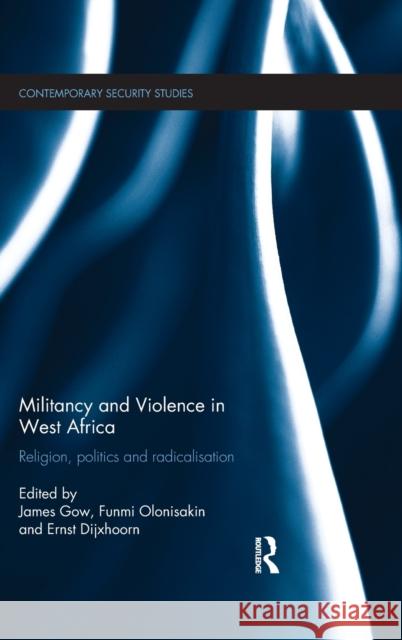Militancy and Violence in West Africa: Religion, Politics and Radicalisation » książka
Militancy and Violence in West Africa: Religion, Politics and Radicalisation
ISBN-13: 9780415821377 / Angielski / Twarda / 2013 / 288 str.
Militancy and Violence in West Africa: Religion, Politics and Radicalisation
ISBN-13: 9780415821377 / Angielski / Twarda / 2013 / 288 str.
(netto: 693,98 VAT: 5%)
Najniższa cena z 30 dni: 705,23
ok. 22 dni roboczych
Dostawa w 2026 r.
Darmowa dostawa!
This volume provides a systematic and cross-regional analysis of radicalisation, militancy and violence in West Africa, and addresses the implications of these developments in terms of both intra-national and international security.
A number of considerations demand attention to the rise of radicalisation and violence in West Africa. First, the decades of conflicts and instability in the region have made it vulnerable to all forms of cross-border instability. Second, the region has become important in global resource politics, with the United States confirming that a quarter of its oil will be coming from the region by 2015. Indeed, the entire Gulf of Guinea is of enormous strategic interest in global energy politics. Third, natural resources in the region were potentially contentious, with alleged links with global terrorism, as in the case of uranium in Niger Republic and diamonds in Sierra Leone. Lastly, the whole issue of radicalization also underlines the crucial issue of youth vulnerability and exclusion, which is rooted to the whole issue of youth bulge, whose prevalence in West Africa remains an issue of global importance.
A major consideration guiding this work is that the wider political and socio-economic instability in West Africa has the tendency to obscure religious radicalisation and violence in the region. Furthermore, the sporadic nature of some of the conflicts emanating from radicalisation, their relatively short duration and the ease with which their root causes can be subsumed under other wider security challenges, have all given the impression that this category of violence is often localised, and as a result, not likely to have consequences or wider ramifications. Consequently, beyond the broad identification of radicalisation as a possible cause of political instability, not much attention was given to how radicalisation and violence in West Africa can have wider ramifications. It is the significance of situations regarding religiously - notably, Islamic motivated radicalisation and violence in West Africa for international security that makes it essential to understand the issues of militancy and violence in the region.
The present volume presents a coherent set of chapters, with the core studies on key countries each using the same methodology, blending historical and conceptual analysis with new empirical research involving focus group discussions and research interviews. Each of these core studies is structured around five interrelated issues: tracing the antecedents of radicalisation; monitoring trends; identifying actors; anticipating possibilities; and analysing the strength of existing preventive mechanisms.
This book will be of much interest to students of African security, African politics, radicalisation, political Islam, war and conflict studies and security studies in general.











